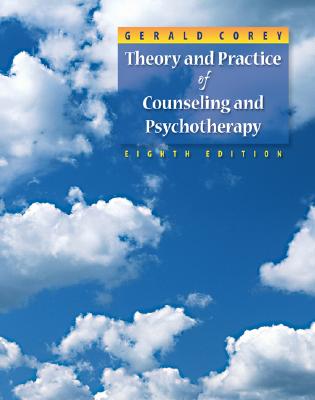 This semester I’m taking a “Counseling Theory and Practice” course as part of my graduate training. One of my big worries going into the program was that I wouldn’t be able to situate myself within the “mainstream” discourse in the field. When I graduated from college in the early 90s, it seemed as if there weren’t any conventional psychology graduate programs that acknowledged and appreciated an integral or integrative approach to mental health, which was one of the reasons I ended up studying East/West Psychology at the California Institute of Integral Studies in San Francisco. I thought of myself as being on the cutting edge back in those days, as one of the few who could see through all the reductionistic b.s. of “mainstream” or “conventional” psychology. And there was probably a little bit of truth to that. It’s only been in the last ten years or so that topics once thought of as woo-woo, like mindfulness, have been appreciated and embraced by mental health professionals outside of a few outposts in California, Colorado, and Massachusetts. But today, assuming the textbooks we’re using at New Mexico State University are any indication of wider trends, it seems that a full-on biopsychosocial, integrative approach to counseling theory and practice is at long last having its day. Here’s a quote from Chapter 1 of Gerald Corey’s Theory and Practice of Counseling and Psychotherapy:
This semester I’m taking a “Counseling Theory and Practice” course as part of my graduate training. One of my big worries going into the program was that I wouldn’t be able to situate myself within the “mainstream” discourse in the field. When I graduated from college in the early 90s, it seemed as if there weren’t any conventional psychology graduate programs that acknowledged and appreciated an integral or integrative approach to mental health, which was one of the reasons I ended up studying East/West Psychology at the California Institute of Integral Studies in San Francisco. I thought of myself as being on the cutting edge back in those days, as one of the few who could see through all the reductionistic b.s. of “mainstream” or “conventional” psychology. And there was probably a little bit of truth to that. It’s only been in the last ten years or so that topics once thought of as woo-woo, like mindfulness, have been appreciated and embraced by mental health professionals outside of a few outposts in California, Colorado, and Massachusetts. But today, assuming the textbooks we’re using at New Mexico State University are any indication of wider trends, it seems that a full-on biopsychosocial, integrative approach to counseling theory and practice is at long last having its day. Here’s a quote from Chapter 1 of Gerald Corey’s Theory and Practice of Counseling and Psychotherapy:
To understand human functioning, it is imperative to account for the physical, emotional, mental, social, cultural, political, and spiritual dimensions. If any of these facets of human experience is neglected, a theory is limited in explaining how we think, feel, and act.
Shit, that sounds an awful lot like the blurb on the front page of this website! Could it be that this integral health stuff is no longer such a radical idea?!?! Perhaps I’ll have to let go of this notion that I’m part of the avant-garde! I can live with that, I suppose… :O)
My other textbook, Hackney and Cormier’s The Professional Counselor, has also alluded to an integral-ish perspective right off the bat, within the first few pages:
Each individual is an ecological existence within a cultural context, living with others in an ecological system. One’s intrapersonal dimensions are interdependent with others who share one’s life space.
Sounds a lot like the “woo” I studied in San Francisco back in the day! I can only hope this integrative vibe continues as the semester unfolds. It’ll sure make having to read hundreds of pages per week a lot less painful.


